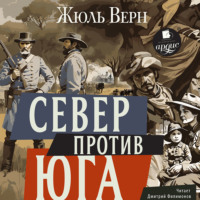 полная версия
полная версияCelebrated Travels and Travellers, Part 3. The Great Explorers of the Nineteenth Century
Lahore was next visited by the officer. It is interesting to know what remained of that fine city at the commencement of the present century. The narrative says: —
"Its very high walls are ornamented externally with all the profusion of Eastern taste, but they are falling into ruins, as are also the mosques and houses inside the town. Time has laid its destructive hand upon this city, as upon Delhi and Agra. The ruins of Lahore are already as extensive as those of that ancient capital."
Three days after his arrival the traveller was received with great politeness by Runjeet Sing, who conversed with him, principally upon military topics. The rajah was then twenty-seven years of age. His countenance would have been pleasant, had not the small-pox deprived him of one eye; his manners were simple, affable, and yet kingly. After paying visits to the tomb of Shah Jehan, to the Schalamar, and other monuments at Lahore, the officer returned to Delhi and the possessions of the Company. To his visit was due that better knowledge of the country which could not fail to tempt the ambition of the English Government.
The following year (1809), an embassy, consisting of Messrs. Nicholas Hankey Smith, Henry Ellis, Robert Taylor, and Henry Pottinger, was sent to the Emirs of Scinde. The escort was commanded by Captain Charles Christie.
The mission was transported to Keratchy by boat. The governor of that fort refused to allow the embassy to disembark, without instructions from the emirs. An interchange of correspondence ensued, as a result of which the envoy, Smith, drew attention to certain improprieties relating to the title and respective rank of the Governor-General and the emirs. The governor excused himself upon the ground of his ignorance of the Persian language, and said, that not wishing a cause of misunderstanding to exist, he was quite ready to kill or put out the eyes (as the envoy pleased) of the person who had written the letter. This declaration appeared sufficient to the English, who deprecated the execution of the guilty person.
In their letters the emirs affected a tone of contemptuous superiority; at the same time they brought a body of 8000 men within reach, and put every possible difficulty in the way of the English efforts to procure information. After tedious negotiations, in the course of which British pride was humbled more than once, the embassy received permission to start for Hyderabad.
Above Keratchy, which is the principal export harbour of Scinde, a vast plain without trees or vegetation extends along the coast. Five days are necessary to cross this, and reach Tatah, the ancient capital of Scinde, then ruined and deserted. Formerly it was brought into communication by means of canals, with the Sind, an immense river, which is, at its mouth, in reality an arm of the sea. Pottinger collected the most precise, complete, and useful details respecting the Sind, which were then known.
It had been arranged beforehand that the embassy should find a plausible excuse for separating and reaching Hyderabad by two different routes, in order to obtain geographical information on the country. The city was soon reached, and the same difficult negotiations about the reception of the embassy, who refused to submit to the humiliating exactions of the emirs, had to be gone through. Pottinger thus describes the arrival at Hyderabad. "The precipice upon which the eastern façade of the fortress of Hyderabad is situated, the roofs of the houses, and even the fortifications, were thronged by a multitude of both sexes, who testified friendly feeling towards us by acclamation and applause. Upon reaching the palace, where they were to dismount, the English were met by Ouli Mahommed Khan and other eminent officers, who walked before us towards a covered platform, at the extremity of which the emirs were seated. This platform being covered with the richest Persian carpet, we took off our shoes. From the moment the envoy took the first step towards the princes, they all three rose, and remained standing until he reached the place pointed out to him – an embroidered cloth, which distinguished him from the rest of the embassy. The princes addressed to each of us polite questions respecting our health. As it was a purely ceremonial reception, everything went off well, with compliments and polite expressions.
"The emirs wore a great number of precious stones, in addition to those which ornamented the hilts and scabbards of their swords and daggers, and emeralds and rubies of extraordinary size shone at their girdles. They were seated according to age, the eldest in the centre, the second to his right, the youngest on the left. A carpet of light felt covered the entire circle, and over this was a mattress of silk about an inch thick, exactly large enough to accommodate the three princes."
The narrative concludes with a description of Hyderabad, a fortress which would have scarcely been able to offer any resistance to a European enemy, and with various reflections upon the nature of the embassy, which had amongst other aims the closing of the entrance of Scinde against the French. The treaty concluded, the English returned to Bombay.
By this expedition the East India Company gained a better knowledge of one of the neighbouring kingdoms, and collected precious documents relating to the resources and productions of a country traversed by an immense river, the Indus of the ancients, which rises in the Himalayas, and might readily serve to transport the products of an immense territory. The end gained was perhaps rather political than geographical; but science profited, once more, by political needs.
Hitherto the little knowledge that had been gained of the regions lying between Cabulistan, India, and Persia, had been as incomplete as it was defective.
The Company, thoroughly satisfied with the manner in which Captain Christie and Lieutenant Pottinger had accomplished their embassy, resolved to confide to them a delicate and difficult mission. They were to rejoin General Malcolm, ambassador to Persia, by crossing Beluchistan, and in so doing to collect more accurate and precise details of that vast extent of country than had hitherto been acquired.
It was useless to think of crossing Beluchistan, with its fanatic population, in European dress. Christie and Pottinger, therefore, had recourse to a Hindu merchant, who provided horses on behalf of the Governments of Madras and Bombay, and accredited them as his agents to Kelat, the capital of Beluchistan.
Upon the 2nd of January, 1810, the two officers embarked at Bombay for Someany, the sole sea-port of the province of Lhossa, which they reached after a stay at Poorbunder, on the coast of Guzerat.
The entire country traversed by the travellers before they arrived at Bela was a morass, interspersed with jungle. The "Djam," or governor of that town, was an intelligent man. He put numerous questions to the English, by which he showed a desire to learn, and then confided the task of conducting the travellers to Kelat, to the chief of the tribe of Bezendjos, who are Belutchis.
The climate had changed since they left Bombay, and in the mountains, Pottinger and Christie experienced cold sufficiently keen to freeze the water in the leather bottles.
"Kelat," says Pottinger, "the capital of the whole of Beluchistan, whence it derives its name, Kelat, or the city, is situated upon a height to the west of a well-cultivated plain or valley, eight miles long and three wide. The greater portion of this is laid out in gardens. The town forms a square. It is surrounded on three sides by a mud wall about twenty feet high, flanked, at distances of 250 feet, by bastions, which, like the walls, are pierced with a large number of barbicans for musketry. I had no opportunity of visiting the interior of the palace, but it consists merely of a confused mass of mud buildings with flat roofs like terraces; the whole is defended by low walls, furnished with parapets and pierced with barbicans. There are about 2500 houses in the town, and nearly half as many in the suburbs. They are built of half-baked bricks and wood, the whole smeared over with mud. The streets, as a rule, are larger than those in towns inhabited by Asiatics. They usually have a raised footway on either side for pedestrians, in the centre an open stream, which is rendered very unpleasant by the filth and rubbish thrown into it, and by the stagnant rainwater which collects, for there is no regulation insisting upon it being cleaned. Another obstacle to the cleanliness and comfort of the town exists in the projection of the upper stories of the houses, which makes the under buildings damp and dark. The bazaar of Kelat is very large, and well stocked with every kind of merchandize. Every day it is supplied with provisions, vegetables, and all kinds of food, which are cheap."
According to Pottinger's account, the population is divided into two distinct classes – the Belutchis and the Brahouis, and each of these is subdivided into a number of tribes. The first is related to the modern Persian, both in appearance and speech; the Brahoui, on the contrary, retains a great number of Hindu words. Intermarriage between the two has given rise to a third.
The Belutchis, coming from the mountains of Mekram, are "Tunnites," that is to say, they consider the first four Imans as the legitimate successors of Mahomet.
They are a pastoral people, and have the faults and virtues of their class. If they are hospitable, they are also indolent, and pass their time in gambling and smoking. As a rule, they content themselves with one or two wives, and are less jealous of their being seen by strangers than are other Mussulmen. They have a large number of slaves of both sexes, whom they treat humanely. They are excellent marksmen, and passionately fond of hunting. Brave under all circumstances, they take pleasure in "razzias," which they call "tchépaos." As a rule, these expeditions are undertaken by the Nherouis, the wildest and most thievish of the Belutchis.
The Brahouis carry their wandering habits still farther. Few men are more active and strong; they endure the glacial cold of the mountains equally with the burning heat of the plains. They are of small stature, but as brave, as skilful in shooting, as faithful to their promises, as the Belutchis, and have not so pronounced a taste for plunder.
Pottinger says, "I have seen no Asiatic people whom they resemble, for a large number have brown hair and beards."
After a short stay at Kelat, the two travellers, who still passed as horse-dealers, resolved to continue their journey, but instead of following the high road to Kandahar, they crossed a dreary and barren country, ill-populated, watered by the Caisser, a river which dries up during the summer; and they reached a little town, called Noschky or Nouchky, on the frontier of Afghanistan.
At this place, the Belutchis, who appeared friendly, represented to them the great difficulty of reaching Khorassan and its capital, Herat, by way of Sedjistan. They advised the travellers to try to reach Kerman by way of Kedje and Benpor, or by Serhed, a village on the western frontier of Beluchistan, and from thence to enter Nermanchir. At the same moment the idea of following two distinct routes presented itself to both Christie and Pottinger. This course was contrary to their instructions; "but," said Pottinger, "we found a ready excuse in the unquestionable advantage which would result from our procuring more extensive geographical and statistical knowledge of the country we were sent to explore than we could hope to do by travelling together."
Christie set out first, by way of Douchak. We shall follow his fortunes hereafter.
A few days later, while still at Noutch, Pottinger received letters from his correspondent at Kelat, telling him that the emirs of Scinde were searching for them, as they had been recognized, and that his best plan for safety was to set out immediately.
Upon the 25th of March Pottinger started for Serawan, a very small town near the Afghan frontier. Upon his way thither Pottinger met with some singular altars, or tombs, the construction of which was attributed to the Ghebers, or fire-worshippers, who are known in our day as Parsees.
Serawan is six miles from the Serawani mountains, in a sterile and bare district. This town owes its existence to the constant supply of water it derives from the Beli, an inestimable advantage in a country constantly exposed to drought, scarcity, and famine.
Pottinger afterwards visited the Kharan, celebrated for the strength and activity of its camels, and crossed the desert which forms the southern extremity of Afghanistan. The sand of this desert is so fine that its particles are almost impalpable, and the action of the wind causes it to accumulate into heaps ten or twenty feet high, divided by deep valleys. Even in calm weather a great number of particles float in the air, giving rise to a mirage of a peculiar kind, and getting into the traveller's eyes, mouth, and nostrils, cause an excessive irritation, with an insatiable thirst.
In all this territory, Pottinger personated a "pyrzadeh," or holy man, for the natives are of a very thievish disposition, and in the character of a merchant he might have been involved in unpleasant adventures. After leaving the village of Goul, in the district of Daizouk, the traveller passed through the ruined towns of Asmanabad, Hefter, and Pourah, where Pottinger was forced to admit that he was a "Feringhi," to the great scandal of the guide, who during the two months they had been together had never doubted him, and to whom he had given many proofs of sanctity.
At last, worn out by fatigue, and at the end of his resources, Pottinger reached Benpor, a locality which had been visited in 1808 by Mr. Grant, a captain in the Bengal Sepoy Infantry. Encouraged by the excellent account given by that officer, Pottinger presented himself to the Serdar. But instead of affording him the necessary help for the prosecution of his journey, that functionary, discontented with the small present Pottinger offered him, found means to extort from him a pair of pistols, which would have been of great use to him.
Basman is the last inhabited town of Beluchistan. At this spot there is a hot sulphureous spring, which the Belutchis consider a certain cure for cutaneous diseases.
The frontiers of Persia are far from "scientific," hence a large tract of country remains not neutral, but a subject of dispute, and is the scene of sanguinary contests.
The little town of Regan, in Nermanchir, is very pretty. It is a fort, or rather a fortified village, surrounded by high walls, in good repair, and furnished with bastions.
Further on, in Persia proper, lies Benn, a town which was formerly of importance, as the ruins which surround it sufficiently prove. Here Pottinger was cordially received by the governor.
"On approaching," says Pottinger, "he turned to one of his suite and asked where the 'Feringhi' was. I was pointed out to him. Making me a sign to follow him, his fixed look at me, which took me in from head to foot, proclaimed his astonishment at my costume, which in truth was strange enough to serve as an excuse for the impoliteness of his staring. I was wearing the long shirt of a Belutchi, and a pair of trousers which had once been white, but which in the six weeks I had worn them had become brown, and were all but in rags; in addition to this I had on a blue turban, a piece of rope served me as a girdle, and I carried in my hand a thick stick, which had assisted me greatly in my walking, and protected me from dogs."
In spite of the dilapidated appearance of the tatterdemalion who thus presented himself before him, the governor received Pottinger with as much cordiality as was to be expected from a Mussulman, and provided him with a guide to Kerman. The traveller reached that town upon the 3rd of May, feeling that he had accomplished the most difficult portion of his journey, and was almost in safety.
Kerman is the capital of ancient Karamania. Under the Afghan rule it was a flourishing town, and manufactured shawls which rivalled those of Cashmere.
Here Pottinger witnessed one of those spectacles which, common enough to countries where human life is of little value, always fill Europeans with horror and disgust. The governor of this town was both son-in-law and nephew of the shah, and also the son of the Shah's wife. "Upon the 15th of May," says Pottinger, "the prince himself judged certain persons who were accused of killing one of their servants. It is difficult to estimate the state of restlessness and alarm which prevailed in the village during the entire day. The gates of the town were shut, that no one might pass out. The government officials did not transact any business. People were cited as witnesses, without previous notice. I saw two or three taken to the palace in a state of agitation which could scarcely have been greater had they been going to the scaffold. About three in the afternoon the prince passed sentence upon those who had been convicted. Some had their eyes put out, some the tongue split. Some had the ears, nose, and lips cut off; others were deprived of their hands, fingers, or toes. I learned that whilst these horrible punishments were inflicted, the prince remained seated at the window where I had seen him, and gave his orders without the least sign of compassion or of horror at the scene which took place before him."
Leaving Kerman, Pottinger reached Cheré Bebig, which is equally distant from Yezd, Shiraz, and Kerman, and thence proceeded to Ispahan, where he had the pleasure of finding his companion Christie. At Meragha he met General Malcolm. It was now seven months since they had left Bombay. Christie had traversed 2250 miles, and Pottinger 2412. Meanwhile Christie had accomplished his perilous journey much better than he had anticipated.
Leaving Noutch upon the 22nd of March, he crossed the Vachouty mountains and some uncultivated country, to the banks of the Helmend, a river which flows into Lake Hamoun.
Christie in his report to the Company says: —
"The Helmend, after passing near Kandahar, flows south-west and west, and enters Sedjestan some four days march from Douchak; making a détour around the mountains, it finally forms a lake. At Peldalek, which we visited, it is about 1200 feet in width, and very deep; the water is very good. The country is cultivated by irrigation for half a mile on either side; then the desert begins, and rises in perpendicular cliffs. The banks of the river abound in tamarind-trees and provide pasturage for cattle."
Sedjestan, which is watered by this river, comprises only 500 square miles. The portions of this district which are inhabited are those upon the river Helmend, whose bed deepens every year.
At Elemdar Christie sent for a Hindu, to whom he had an introduction. This man advised him to dismiss his Belutchi attendants and to personate a pilgrim. A few days later he penetrated to Douchak, now known as Jellalabad. He says: —
"The ruins of the ancient city cover quite as large a space of ground as Ispahan. It was built, like all the towns of Sedjistan, of half-burned bricks, the houses being two stories high, with vaulted roofs. The modern town of Jellalabad is clean, pretty, and growing; it contains nearly 2000 houses and a fair bazaar." The road from Douchak to Herat was easy. Christie's sole difficulty was in carrying out his personation of a pilgrim. Herat lies in a valley, surrounded by high mountains and watered by a river, to which it is due that gardens and orchards abound. The town covers an area of about four square miles; it is surrounded by a wall flanked with towers, and a moat full of water. Large bazaars, containing numerous shops, and the Mechedé Djouna, or Mosque of Friday, are its chief ornaments.
No town has less waste land or a denser population. Christie estimates it at 100,000. Herat is the most commercial of all Asiatic towns under the dominion of native princes. It is the depôt for all the traffic between Cabul, Candahar, Hindustan, Cashmere, and Persia, and itself produces choice merchandize, silks, saffron, horses, and asafoetida.
"This plant," says Christie, "grows to a height of two or three feet, the stalk is two inches thick; it finishes off in an umbel which at maturity is yellow, and not unlike a cauliflower. It is much relished by Hindus and Belutchis. They prepare it for eating by cooking the stalks in ashes, and boiling the head like other vegetables; but it always retains its pungent smell and taste." Herat, like so many other Eastern towns, possesses beautiful public gardens, but they are only cultivated for the sake of the produce, which is sold in the bazaar. After a stay of a month at Herat, disguised as a horse-dealer, Christie, announcing that he would return after a pilgrimage to Meshid, which he contemplated, left the town. He directed his course to Yezd, across a country ravaged by the Osbeks, who had destroyed the tanks intended to receive the rain-water.
Yezd is a large and populous town on the skirts of a desert of sand. It is called "Dar-oul-Ehabet" or "The Seat of Adoration." It is celebrated for the security to be enjoyed there, which contributes largely to the development of its trade with Hindustan, Khorassan, Persia, and Bagdad. Christie describes the bazaar as large and well stocked. The town contains 20,000 houses, apart from those belonging to the Ghebers, who are estimated at 4000. They are an active and laborious people, although cruelly oppressed. From Yezd to Ispahan, where he alighted at the palace of the Emir Oud-Daoulé, Christie had travelled a distance of 170 miles upon a good road.
At Yezd, as we have seen, he met his companion, Pottinger. The two friends could but exchange mutual congratulations at the accomplishment of their mission, and their escape from the dangers of a fanatical country.
Pottinger's narrative, as may perhaps be gathered from the sketch we have given, was very curious. More exact than most of his predecessors, he had collected and offered to the public a mass of most interesting historical facts, anecdotes, and geographical descriptions.
Cabulistan had been, from the middle of the eighteenth century, the scene of a succession of ruinous civil wars. Competitors, with more or less right to the throne, had carried fire and sword everywhere, and converted that rich and fertile province into a desert, where the remains of ruined cities alone bore witness to former prosperity.
About the year 1808 the throne of Cabul was occupied by Soojah-Oul-Moulk. England, uneasy at the projects formed by Napoleon with a view of attacking her possessions in India, and at the offers of alliance made by him through General Gardane to the Shah of Persia, resolved to send an embassy to the court of Cabul, hoping to gain the king over to the interests of the East India Company.
Mountstuart Elphinstone was selected as envoy, and has left an interesting account of his mission. He collected much novel information concerning this region and the tribes by which it is peopled. His book acquires a new interest in our own day, and we turn with pleasure to pages devoted to the Khyberis and other mountain tribes, amid the events which are now taking place.
Leaving Delhi in October, 1808, Elphinstone reached Kanun, where the desert commences, and then the Shekhawuttée, a district inhabited by Rajpoots. At the end of October the embassy arrived at Singuana, a pretty town, the rajah of which was an inveterate opium-smoker. He is described as a small man, with large eyes, much inflamed by the use of opium. His beard, which was curled up to his ears on each side, gave him a ferocious appearance.
Djounjounka, whose gardens give freshness in the midst of these desert regions, is not now a dependency of the Rajah of Bekaneer, whose revenues do not exceed 1,250,000 francs. How is it possible for that prince to collect such revenues from a desert and uncultivated territory, overrun by myriads of rats, flocks of gazelles, and herds of wild asses?
The path across the sand-hills was so narrow that two camels abreast could scarcely pass it. At the least deviation from the path those animals would sink in the sand as if it had been snow, so that the smallest difficulty with the head of the column delayed the entire caravan. Those in front could not advance if those in the rear were delayed; and lest they should lose sight of the guides, trumpets and drums were employed as signals to prevent separation.








